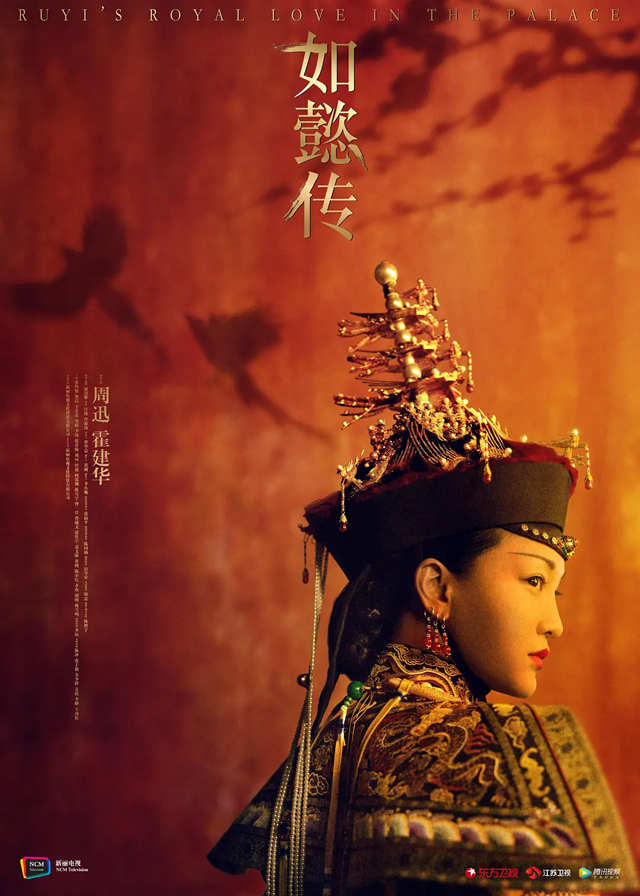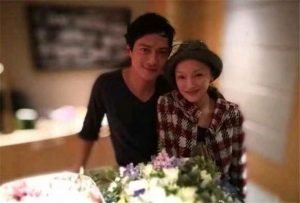Ruyi's Royal Love in the Palace Episode 14 Recap
> Ruyi's Royal Love in the Palace Recap
- 1
- 2
- 3
- 4
- 5
- 6
- 7
- 8
- 9
- 10
- 11
- 12
- 13
- 14
- 15
- 16
- 17
- 18
- 19
- 20
- 21
- 22
- 23
- 24
- 25
- 26
- 27
- 28
- 29
- 30
- 31
- 32
- 33
- 34
- 35
- 36
- 37
- 38
- 39
- 40
- 41
- 42
- 43
- 44
- 45
- 46
- 47
- 48
- 49
- 50
- 51
- 52
- 53
- 54
- 55
- 56
- 57
- 58
- 59
- 60
- 61
- 62
- 63
- 64
- 65
- 66
- 67
- 68
- 69
- 70
- 71
- 72
- 73
- 74
- 75
- 76
- 77
- 78
- 79
- 80
- 81
- 82
- 83
- 84
- 85
- 86
- 87
Consort Xian dismissed her attendants, remaining only with Lianxin. Consort Xian inquired why Lianxin attempted to take her own life, but Lianxin insisted it was merely an accident and she had not called for help. Consort Xian sternly reminded her that suicide was a grave crime for palace women, one that would implicate their families, and pointed out that she still had her husband, Wang Qin.
Lianxin, overcome with emotion, expressed her wish to drag Wang Qin to hell if she were to die, revealing that her life had been over since the day she was married to him. Despite appearing as a respectable palace attendant to the Empress and the wife of the Deputy Chief Eunuch during the day, she felt manipulated in the background and disgraced behind closed doors.
Consort Xian apologized for A'Ruo's previous mistreatment of Lianxin, stating that A'Ruo had been disciplined, but Lianxin dismissed it as insignificant compared to her nightly torment. She confessed that Wang Qin was not human at night, but a beast. Rolling up her sleeve, Lianxin revealed arms covered in bruises and needle marks, explaining that Wang Qin would beat, bite, prick her with needles, and humiliate her in every conceivable way.
He desired a woman who could provide him dignity by day but endure his torture at night. Consort Xian questioned why Lianxin didn't report this to the Empress. Lianxin despairingly explained it was futile, as the Empress had arranged the marriage to Wang Qin to gain insight into His Majesty's thoughts, protect her own position, and pave the way for the Second Prince.
Furthermore, the Empress's family was caring for Lianxin's younger siblings to ensure her obedience, preventing her from committing suicide outright. She could only stage an accidental drowning, hoping her death would finally protect her siblings from further suffering. Consort Xian, however, cautioned that if Lianxin died, the Empress might deem her family useless and cease to care for them, while Wang Qin, enraged, might also seek retribution against them.
Consort Xian then promised to help Lianxin, emphasizing the need to wait for the opportune moment and to endure the current suffering. Lianxin, grateful, swore to repay Consort Xian with her life if she could escape her plight. Consort Xian instructed Lianxin to change into fresh clothes and return to Changchun Palace as if nothing had happened, and Lianxin knelt in profound thanks. The Emperor showed great concern for Noble Lady Mei's royal fetus, personally tending to her.
He noted her due date was in spring and had already instructed the Empress to care for her, exempting her from daily morning greetings. While he expressed hope for a prince, he assured Noble Lady Mei he would cherish the child regardless of gender, though admitting a boy would be best. Noble Lady Mei often felt unwell during her eighth month of pregnancy, which an Imperial Physician confirmed was normal.
The Empress, making thorough preparations, arranged for midwives and Imperial Physicians to reside at Yonghe Palace and decreed that Noble Lady Mei remain there for her postpartum recovery. Noble Consort Hui, however, remarked on Noble Lady Mei's seemingly constant ailments, questioning if she truly possessed good fortune. Noble Lady Jia skillfully redirected the conversation when Noble Lady Yi suddenly felt nauseous.
The Imperial Household Department, observing the Emperor's preference for a son, sent mostly male clothing and toys to Yonghe Palace, which caused Noble Lady Mei to worry about disappointing His Majesty if she were to bear a princess. Her maids tried to console her, mentioning that names were already being drafted for the royal child. At Yanxi Palace, the Emperor showed Consort Xian a list of names proposed by the Imperial Household Department.
For a prince, the names were Yongcheng, Yongxi, and Yongjue. For a princess, Jingying or Jingfu. He asked Consort Xian for her opinion, playfully suggesting she could name their own future children. Consort Xian, noting the Emperor's high hopes for Noble Lady Mei's child, suggested Yongxi for a prince, and found both Jingying and Jingfu suitable for a princess. The Emperor agreed that Yongxi was an excellent choice.
Suddenly, a eunuch reported that Noble Lady Mei's womb showed sudden movement, indicating early labor. Consort Xian urged the Emperor to go to Yonghe Palace, and he asked her to accompany him. Upon their arrival at Yonghe Palace, the Emperor was alarmed by Noble Lady Mei's mournful screams, though Consort Xian reassured him that such cries were common during childbirth. As Noble Lady Mei was a month early and labor was prolonged, an Imperial Physician was dispatched for labor-inducing medicine.
The Empress arrived shortly after, offering comfort to the anxious Emperor and arranging for additional experienced midwives. She also mentioned having masters from Anhua Temple pray for the safe delivery of mother and child. Due to the cold, they moved to a side hall to await the birth. A faint cry was soon heard, leaving the Emperor uneasy about its weakness. Imperial Physician Qi Ru reported that Noble Lady Mei had fainted from exhaustion but was otherwise fine.
However, he regretfully announced that she had given birth to a prince who was born with deficits and had passed away shortly after birth. The Emperor, refusing to believe it, ordered Wang Qin to bring the child, despite Imperial Physician Qi Ru's advice against seeing him. Wang Qin appeared with the child but hesitated to approach. After the Empress dismissed Sulian and Suoxin, the Emperor insisted on seeing his son.
Despite the Empress's warnings to remain composed and remember his many descendants, the Emperor uncovered the swaddling, revealing the child's deformities. The sight caused him to stagger and almost collapse in shock. Imperial Physician Qi Ru explained that even if the child had lived, he would not have survived long due to his condition.
The Empress quickly instructed Wang Qin to declare that Noble Lady Mei had given birth to a stillborn and to bury the child immediately, emphasizing that no one outside of the Emperor, herself, Consort Xian, and Wang Qin should ever know the truth. The Emperor, supported and visibly exhausted, left the side hall, asking the Empress and Consort Xian to console Noble Lady Mei.
Wang Qin was carrying the deceased prince for burial when he encountered Noble Consort Hui, who was on her way to visit Noble Lady Mei. Noticing Wang Qin's distraught state, Noble Consort Hui uncovered the blanket, revealing the deformed child, and recoiled in shock. Wang Qin pleaded with her to keep what she saw a secret. Noble Consort Hui, shaken, returned to her palace, noting that Noble Lady Mei's child was gone, believing it brought an end to all troubles.
Meanwhile, Noble Lady Mei was inconsolable, crying out for her child and demanding to see it. The Empress urged her to contain her grief, as Consort Xian gently explained that the child had died upon being born and had already been buried by His Majesty's order. Noble Lady Mei, having heard the baby cry, refused to believe it.
Consort Xian confirmed the child had indeed cried twice but was very weak and stopped breathing shortly after, beyond the Imperial Physician's help. Noble Lady Mei lamented that her child was buried so quickly, without her even seeing its face. The Empress explained that the Emperor wished to spare her further distress. Consort Xian and Noble Lady Mei's maids corroborated this.
The Empress advised Noble Lady Mei to allow the Master at Anhua Hall to chant scriptures for the child's soul to find peace. Noble Lady Mei then tearfully asked if it was a boy or a girl. The Empress revealed it was a prince, and together with Consort Xian, emphasized the importance of the chanting and of Noble Lady Mei's recovery, warning her not to be overly heartbroken.
The Empress Dowager, learning of the "dead at birth" prince, remarked on Noble Lady Mei's misfortune and the Emperor's distress. She agreed with the Empress's decision to keep Noble Lady Mei in Yonghe Palace for recovery. Later, she summoned the Emperor, who was still deeply troubled by thoughts of the child. The Empress Dowager reassured him that prayers had been arranged for the child's peaceful passing.
Acknowledging the inauspiciousness of such an event early in his reign, she nevertheless urged him to uplift his spirits, assuring him he would have other children. Noble Lady Mei herself was deeply saddened by the loss of her child and felt trapped in Yonghe Palace, as the Emperor had not visited her for half a month, nor had anyone else. Her maid Suyun encouraged her to think of a way to change her situation.
Later, Consort Xian and Concubine Hai discussed Noble Lady Mei's confinement to Yonghe Palace despite completing her postpartum month, and the Emperor's coldness towards her, which Consort Xian found pitiful. Concubine Hai observed that people often abandon those who fall on hard times but thought remaining in her palace was better than facing others' judgment, noting that royal favor was fleeting. At the morning greetings, the Empress Dowager inquired about Noble Lady Mei's absence.
The Empress explained Noble Lady Mei was too upset and needed rest, but the Empress Dowager asserted that serving the Emperor was a higher priority than personal grief, noting the Emperor's low spirits. To uplift the Emperor, the Empress then joyfully announced Noble Lady Yi's two-month pregnancy, proclaiming it a heavenly blessing. All the consorts offered their congratulations.
As Noble Consort Hui and Consort Xian left, Noble Consort Hui commented on their shared struggle in childbirth, a rare common ground despite their differences. She then questioned Consort Xian about Noble Lady Mei's child, suggesting it was more than just a stillborn, and asked if Consort Xian had noticed anything strange, given the Emperor's prolonged sadness. Consort Xian feigned ignorance, attributing the Emperor's sadness to it being his first child after succession and having seen it.
Noble Consort Hui persisted, having heard rumors that the Emperor ordered a month of chanting because the child was "strangely shaped," and pointed out that Consort Xian was at Yonghe Palace and must know. Consort Xian denied seeing anything unusual, claiming her role was merely to console the Emperor and Noble Lady Mei, and advised Noble Consort Hui against speaking recklessly as the Emperor was sensitive about the matter.
Noble Consort Hui, in a private conversation with her maid, hinted that Consort Xian was deliberately withholding information. Suddenly, Suoxin rushed in to report that Noble Lady Mei had attempted suicide. Consort Xian hurried to Yonghe Palace, where the Empress was scolding Noble Lady Mei's maids, but fortunately, Noble Lady Mei was alive. The maids explained that Noble Lady Mei had been unstable and, after dismissing them for a nap, was found attempting to hang herself.
Noble Lady Mei, in her despair, accused the Emperor and Empress of locking her away to prevent her from learning the truth about her child, which she believed to be a monster, and begged to be allowed to die. The Emperor denounced her actions as ridiculous. Noble Consort Hui interjected, stating that she too would attempt suicide if she were Noble Lady Mei, having heard the widespread rumors of giving birth to an "inauspicious monster."
The Emperor, angered, demanded to know the source of such nonsense. Noble Consort Hui confirmed it was whispered privately throughout the palace. Noble Lady Mei then directly confronted the Emperor, asking if her child was truly a monster and if he now hated her. The Emperor denied the rumors, stating his absence was to allow her rest, and ordered Wang Qin to immediately investigate the source of the rumors and severely punish those spreading false information.
Outside Yonghe Palace, Noble Consort Hui suggested to the Emperor that Noble Lady Mei's "kind of child" was inauspicious and could negatively affect Noble Lady Yi's pregnancy. She proposed fulfilling Noble Lady Mei's wish to die and be reunited with her child. Consort Xian countered that child deaths in the palace were not uncommon and should not affect others.
She argued that Noble Lady Mei's suicide attempt was a result of fear and confusion caused by the rumors, and now that she was lucid, she should not be punished. Noble Consort Hui angrily retorted, asking if Consort Xian would also commit suicide if she (and Consort Xian) could not give birth smoothly due to Noble Lady Mei's influence. The Emperor immediately ordered them to cease their argument.












